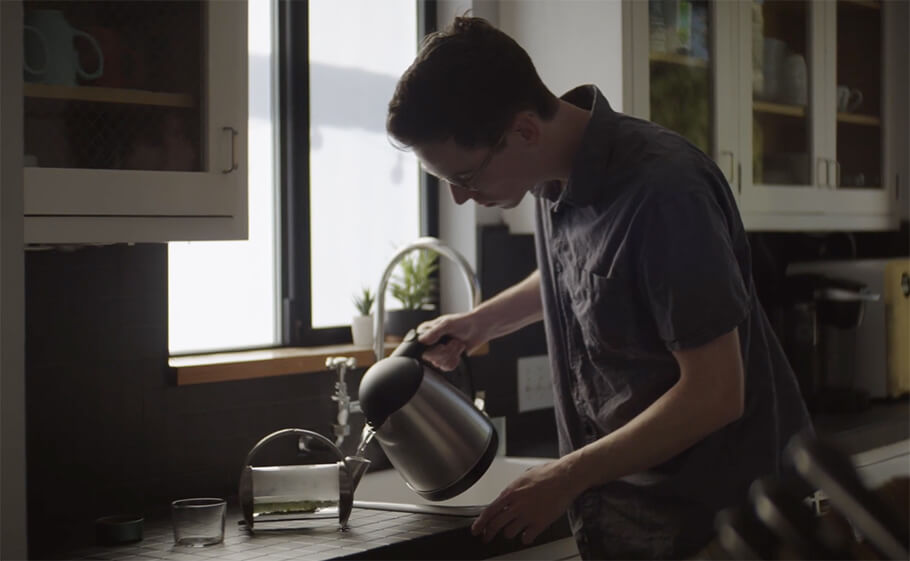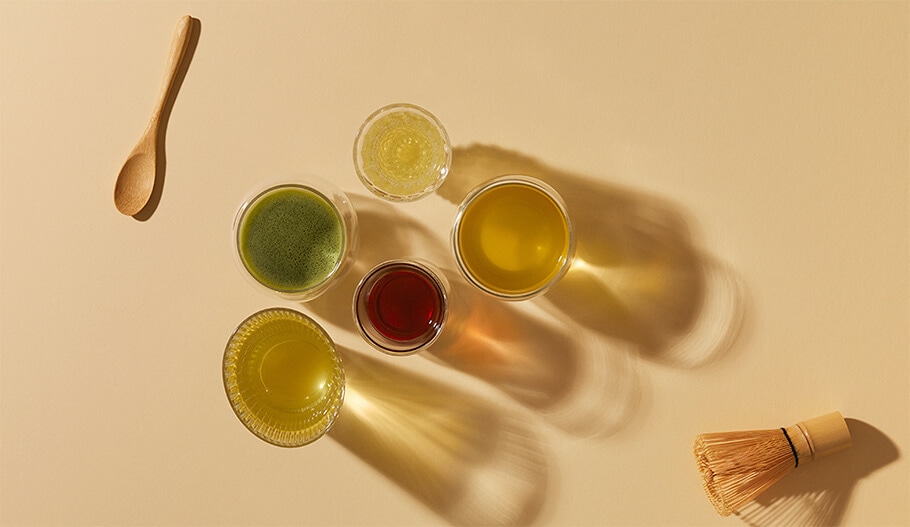

Try taking a few short breaks in your day. As simple as brewing Japanese green tea to hear the sound of hot water running through the tea, feel the warmth of the cup, breath in the aroma, sip and sit with your thoughts can be a moment of simplifying your life and time. Experts note that relaxing activities are an essential part of self-care as it helps to replenish your mental resources – even if it’s just for 10 minutes at a time. For tips on how to prepare tea, check out this video.

There are many varieties of Japanese Green Tea and they all serve a different purpose. It is a great source of theanine, vitamin C, catechin, and caffeine. From clear green teas like soothing Gyokuro to dark, fragrant varieties like Hojicha, no two types of Japanese green tea are the same.
Take Matcha, for instance. Yes, it has caffeine, but it’s not the jittery kind because Matcha also has a lot of theanine, a key amino acid found almost exclusively in green tea and known to have a calming effect. It’s a perfect cup of tea to start your day off feeling both energized and focused.
Gyokuro is another great option for the morning. Because it’s grown with limited lights, the lack of photosynthesis suppressed the generation of catechins from theanine despite the presence of caffeine, making it somewhat similar to Matcha in the balance of energy and calm, but it’s a smoother, milder, and sweeter taste.
Sencha is the most popular green tea in Japan. It is light, refreshing and often enjoyed in daily life. Preparing a cold brew Sencha helps release theanine can be an easy way to enjoy Japanese green tea in your day. Our friend Nikki Reed is a fan of this method since it’s so easy to make!
For evenings, Genmaicha and Hojicha are wonderful options due to the low amount of caffeine in both. Genmaicha is great for dieting or to boost recovery. It has roasted rice and is known for its nutty flavor and aroma. Hojicha eases the body into restful slumber. Because it also cleanses the palate, it is often enjoyed after meal. It has a savory earthy aroma and a mellow, lighter taste.
Along with a tea break serving as a way to relax, Japanese green tea is also known to have an effect on such mental health issues as depression and anxiety. A Japanese study in 2019 showed that 200mg of theanine each day helped decrease depression and anxiety, and improve cognitive functioning, such as verbal fluency and executive function, as reported by the National Institutes of Health.
Another study in 2013 showed that regular green tea consumption increased dopamine and serotonin levels, which are known as the “feel good” chemicals in the brain that have been linked to reducing depression and anxiety as well. Of course, green tea is not recommended to treat these issues but rather used as a natural addition to one’s self-care routine.
Taking time out of your day for a tea break can work wonders for your mind and spirit and can be a refreshing part of your self-care routine. For more information and tips on how Japanese green tea can help you on your journey to simplification, check out our journey on social media here: @justteayourself.
Article Research Links:
— https://www.wright.edu/
— https://www.ncbi.nlm.nih.gov/
— https://www.itoen-global.com/
— https://healthyeating.sfgate.com/








